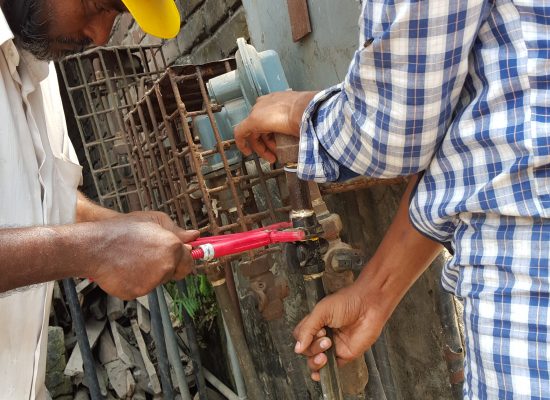


Bangladesh is one of the 50 least developed countries in the world, where poor infrastructure hinders progress. The country struggles to meet its growing energy demand, and reserves of domestically produced natural gas are depleting, prompting recent imports of expensive liquefied natural gas (LNG). Additionally, Bangladesh’s gas distribution network is old and deteriorated, leading to numerous gas leaks, especially in the poorest regions. This results in significant methane emissions, a potent greenhouse gas more than 20 times stronger than CO2. Moreover, several gas explosions have occurred, causing dozens of fatalities. These incidents highlight the ongoing risks associated with insufficient maintenance and delayed repairs.
This project focuses on detecting and repairing gas leaks in Bangladesh. More than 100 local workers are being trained for this purpose. In addition, specialized technology, materials, and expertise are being funded and transferred to a developing country. To date, over 500,000 gas pipelines have been inspected, and more than 37,000 leaks have been identified and repaired. Beyond CO2 reduction, the project offers significant social and economic benefits for the people of Bangladesh, including employment, safety, and reduced dependence on expensive imported LNG gas.


This project in Bangladesh is financed through carbon credits, with ORCA investing to enable the detection and repair of gas leaks. The CO2 reduction is accurately measured and independently verified under the Verified Carbon Standard (VCS). Thanks to high integrity ratings from BeZero and the CCP label from ICVCM, this project is considered a reliable and effective climate solution.
